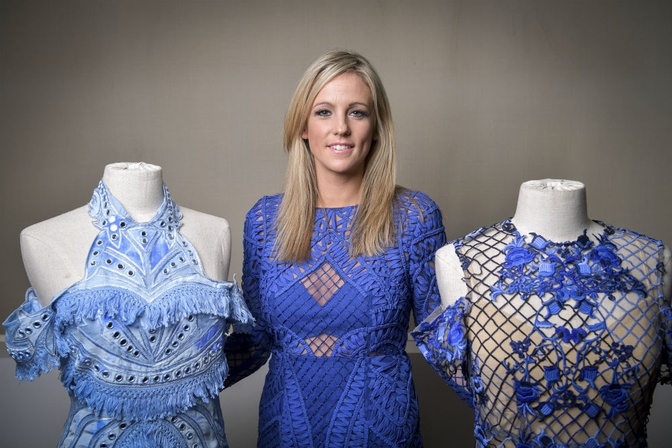In partnership with Hostplus, we find out what this famous designer wishes she’d known at the start of her career.

Thurley is a nationally and internationally successful fashion label, committed to creating modern but timeless garments for women all over the world. From the get-go, founder Helen O’Connor needed to adapt to achieve success.
O’Connor began studying fashion at RMIT University where her first challenge was the Australian perspective on fashion. At the time, the industry was grounded in a “hard reality” which made it difficult for her and her peers to dream big. But when O’Connor received a scholarship to study at the Fashion Institute of Technology (FIT) in New York, she found America had more of a “you can do it” attitude. This inspired her to accept the obstacles in her way and go for it. “It was a transformative time,” O’Connor says.
Following its debut at L’Oréal Melbourne Fashion Week in 2006, a thriving Thurley is now in its 11th year.
O’Connor’s label has evolved to accommodate both her personal inspiration and the demands of the local and global market. But it hasn’t been a simple journey by any means. She shares some of what she wishes she’d known when she was starting out, and the wisdom she’s gained on the way.

Initially O’Connor she did not anticipate the many different roles a designer would need to fill. Fortunately, she was up to the task. In the fashion industry, the cliché “adapt or die” really applies.
“You need to be able to jump into anyone’s shoes,” she says. “You need to be familiar with computing and IT, logistics, business skills and so on. It was something I just had to learn on the job – you aren’t taught it at school.”
Amidst the pressures of the fashion world, confidence is key. As O’Connor says, “You need to promote both your brand and yourself – because you are the face of your brand.”
O’Connor wishes she’d had this confidence from the start, but she quickly learned.
“I used to have a habit of talking myself down,” she says, “but it’s not going to get you anywhere in a competitive industry. You have to have courage in your convictions that you have something unique to offer the marketplace and consumers.”


Once you’ve found the confidence you need, the next step is to find people and organisations that will back you.
O’Connor wishes she’d known the importance of what she calls a “tight-lean business” from the very beginning. The secret, she says, is a small and efficient team. According to O’Connor, this is one of the most effective ways to develop as a company.
“You need to make sure your team is streamlined ... and that your collections are edited and focused on meeting your core customers’ needs. You should keep an eye on both at all times so that you are adapting to the market’s ever-changing conditions.”
As with many industries, contacts are everything, and networking is hugely important.
“Fashion is a small industry, and memories last,” O’Connor says; the impression you make on important people won’t be forgotten quickly (for good or for bad!). “To this day,” she says, “I find it hard to talk to some of the very intimidating people that run the fashion industry.”
Despite this, O’Connor is committed to getting on with it and doing her best to adapt. It’s been a huge part her success.
This article is presented in partnership with Hostplus, superannuation you can take with you throughout your career.
Images: Supplied



